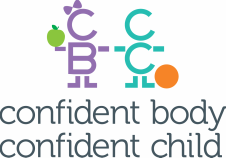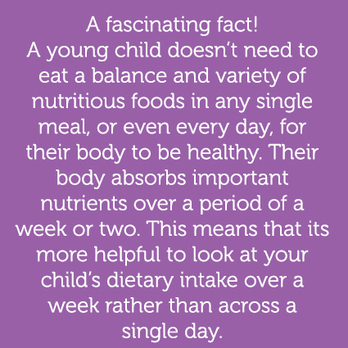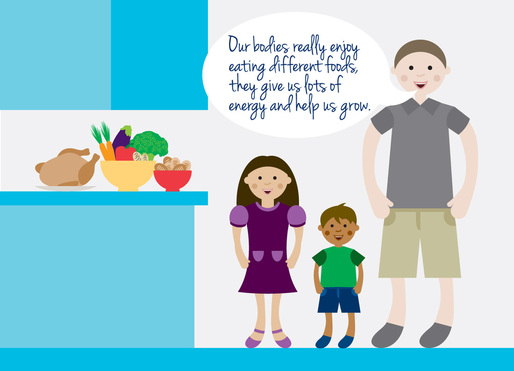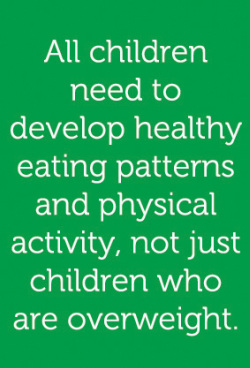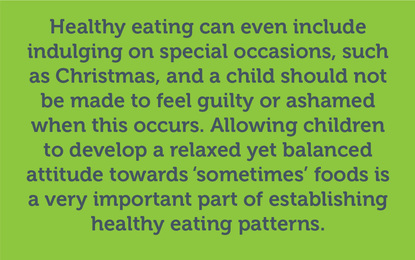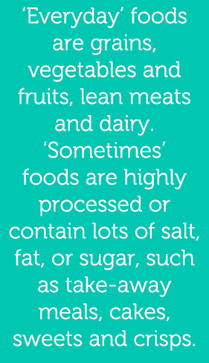what is healthy eating?
_ _ _ _ _ _ _ _ _ _ _ _ _ _ _ _ _ _ _ _ _ _ _ _ _ _ _ _ _ _ _ _ _ _ _ _ _ _ _ _ _ _ _ _ _ _ _ _ _
why are healthy eating patterns and attitudes important
for body image?
_ _ _ _ _ _ _ _ _ _ _ _ _ _ _ _ _ _ _ _ _ _ _ _ _ _ _ _ _ _ _ _ _ _ _ _ _ _ _ _ _ _ _ _ _ _ _ _ _ _ _ _ _ _
Healthy eating patterns and attitudes are important for developing a good relationship with food and with the body. Establishing healthy eating patterns and attitudes early in life can protect a child from developing later problems with food and eating. Given that food is fuel for our body, it’s important to make this relationship a happy one, by promoting food and eating as something enjoyable and pleasant.
Lifelong eating patterns and attitudes, such as eating breakfast every morning, develop very early in life, and are well established by the time children start school. This is why it’s important to establish healthy eating patterns and attitudes in your child at an early age. If you have children who are already at school and you are concerned about their eating patterns and attitudes, it’s never too late to try to make some healthy changes. A child’s parents and family are first to introduce a child to food and eating, and therefore, can play an important role in shaping a child’s eating patterns and attitudes. A child is more likely to have healthy eating patterns if the whole family is involved.
Lifelong eating patterns and attitudes, such as eating breakfast every morning, develop very early in life, and are well established by the time children start school. This is why it’s important to establish healthy eating patterns and attitudes in your child at an early age. If you have children who are already at school and you are concerned about their eating patterns and attitudes, it’s never too late to try to make some healthy changes. A child’s parents and family are first to introduce a child to food and eating, and therefore, can play an important role in shaping a child’s eating patterns and attitudes. A child is more likely to have healthy eating patterns if the whole family is involved.

Eating breakfast every morning is an important eating pattern to instill in a young child to establish healthy eating habits. Eating breakfast every day is beneficial for all ages. It’s linked with improved nutrition, a healthier lifestyle, and better mental health. For children, eating breakfast decreases the likelihood that a child will snack more often throughout the day or want to eat foods high in fat or sugar. Children who eat breakfast are also more likely to have other healthy eating patterns, be able to concentrate and learn throughout the day, and have better long-term management of body weight.
Children who get into the habit of eating breakfast every day from a young age are more likely to continue these behaviours as they get older. It can be difficult to make time for breakfast every morning, but just having some nutritious foods in the morning is better than
nothing at all.
Children who get into the habit of eating breakfast every day from a young age are more likely to continue these behaviours as they get older. It can be difficult to make time for breakfast every morning, but just having some nutritious foods in the morning is better than
nothing at all.
_ _ _ _ _ _ _ _ _ _ _ _ _ _ _ _ _ _ _ _ _ _ _ _ _ _ _ _ _ _ _ _ _ _ _ _ _ _ _ _ _ _ _ _ _ _ _ _ _ _ _ _ _ _
tips for parents
_ _ _ _ _ _ _ _ _ _ _ _ _ _ _ _ _ _ _ _ _ _ _ _ _ _ _ _ _ _ _ _ _ _ _ _ _ _ _ _ _ _ _ _ _ _ _ _ _ _ _ _ _ _
|
• Be a good role model by consuming a balanced variety and amount of nutritious foods and drinks.
• Make nutritious food options readily available at home. • Encourage breakfast every day by providing nutritious breakfast options, as children who eat breakfast tend to have healthy eating patterns. • Set a good example and eat breakfast every day too. • Avoid labelling foods as ‘good/bad’, ‘toxic/ clean’, ‘junk food/healthy’, as this may lead children to desire ‘sometimes’ foods more and feel guilty when they are eaten. • Explain to young children the difference between ‘everyday’ foods and ‘sometimes’ foods. • Understand that ‘sometimes’ foods are part of a healthy, varied, balanced diet if they are eaten on some occasions and in small amounts. • Allow children to eat ‘sometimes’ foods in moderation, as banning these foods may lead their child to over-eat them when available. • Model eating ‘sometimes’ foods in moderation, without talking about being ‘bad’ or feeling guilty. |
